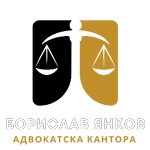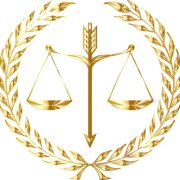Best Constitutional Law Lawyers in Bulgaria
Share your needs with us, get contacted by law firms.
Free. Takes 2 min.
Or refine your search by selecting a city:
List of the best lawyers in Bulgaria
About Constitutional Law in Bulgaria
Constitutional Law in Bulgaria governs the fundamental principles and legal frameworks that define the structure and operation of the Bulgarian state. It is enshrined in the Bulgarian Constitution, adopted in 1991, which outlines the separation of powers, the functioning of government institutions, and the protection of fundamental rights and freedoms. This body of law ensures that the government operates within its lawful boundaries and that citizens' rights are protected against infringements.
Why You May Need a Lawyer
There are various situations where seeking legal advice in Constitutional Law might be necessary. You may need a lawyer if you believe your constitutional rights have been violated, if you are involved in legal proceedings that challenge the legality of a governmental action, or if you need interpretation or advice on compliance with constitutional provisions. Additionally, lawyers can help in challenging legislation that may seem to contradict constitutional mandates or provide assistance in drafting amendments or reforms.
Local Laws Overview
Bulgaria's Constitution is the supreme law, and all other laws and regulations must align with its principles. Key aspects include the separation of powers into the legislative, executive, and judicial branches; the protection of individual rights such as freedom of speech, press, and religion; and the mechanism for constitutional amendments. The Constitutional Court plays a vital role in interpreting the Constitution and ensuring laws comply with constitutional standards.
Frequently Asked Questions
What is the role of the Constitutional Court in Bulgaria?
The Constitutional Court is responsible for interpreting the Constitution, ruling on the constitutionality of laws and other acts, and resolving conflicts of competence among the main branches of government.
How can I challenge a law in Bulgaria that I believe is unconstitutional?
Individuals and organizations can challenge laws by filing a case before the Constitutional Court. It's important to have legal representation to navigate the complex judicial processes effectively.
What are some examples of fundamental rights protected by the Bulgarian Constitution?
The Bulgarian Constitution protects various rights including freedom of speech, religion, right to fair legal proceedings, protection against discrimination, and the right to privacy.
Can the Bulgarian Constitution be amended?
Yes, the Constitution can be amended through a rigorous process that typically requires a significant parliamentary majority, reflecting the importance of stability and consensus in constitutional changes.
What is the process for appointing judges to the Constitutional Court?
Judges are appointed by the National Assembly, the President, and the judicial authorities, ensuring a balanced representation and independence of the court.
What are the checks and balances in the Bulgarian constitutional system?
The separation of powers is the primary mechanism for checks and balances among the legislative, executive, and judicial branches to ensure no branch exceeds its constitutional powers.
How does the Bulgarian Constitution address international law?
The Bulgarian Constitution upholds the precedence of international treaties and agreements over domestic legislation, provided they are ratified by the National Assembly.
What is a constitutional complaint, and how is it filed?
A constitutional complaint involves challenging a specific violation of constitutional rights, often handled directly by the Constitutional Court after preliminary legal procedures.
Are there recent examples of significant constitutional legal cases in Bulgaria?
There have been notable cases, such as those dealing with electoral reforms, privacy rights, and governmental powers, illustrating the dynamic nature of constitutional law.
What should I do if I think my constitutional rights have been violated?
It's advisable to consult with a lawyer specializing in constitutional law to explore your legal options, including potentially filing a case with the Constitutional Court.
Additional Resources
For further information and assistance, consider the following resources: the Constitutional Court of Bulgaria for case rulings and information, legal aid services for support with legal representation, and human rights organizations that offer educational materials and advocacy.
Next Steps
If you need legal assistance, start by consulting with a legal expert specializing in constitutional law. Prepare any documentation related to your case and be ready to discuss your situation in detail. Consider contacting your local legal aid office or a specialized law firm to ensure you receive informed and professional guidance. Staying informed about your rights and the constitutional processes can significantly strengthen your position and ensure a clearer path to resolution.
Lawzana helps you find the best lawyers and law firms in Bulgaria through a curated and pre-screened list of qualified legal professionals. Our platform offers rankings and detailed profiles of attorneys and law firms, allowing you to compare based on practice areas, including Constitutional Law, experience, and client feedback.
Each profile includes a description of the firm's areas of practice, client reviews, team members and partners, year of establishment, spoken languages, office locations, contact information, social media presence, and any published articles or resources. Most firms on our platform speak English and are experienced in both local and international legal matters.
Get a quote from top-rated law firms in Bulgaria — quickly, securely, and without unnecessary hassle.
Disclaimer:
The information provided on this page is for general informational purposes only and does not constitute legal advice. While we strive to ensure the accuracy and relevance of the content, legal information may change over time, and interpretations of the law can vary. You should always consult with a qualified legal professional for advice specific to your situation.
We disclaim all liability for actions taken or not taken based on the content of this page. If you believe any information is incorrect or outdated, please contact us, and we will review and update it where appropriate.
Browse constitutional law law firms by city in Bulgaria
Refine your search by selecting a city.















